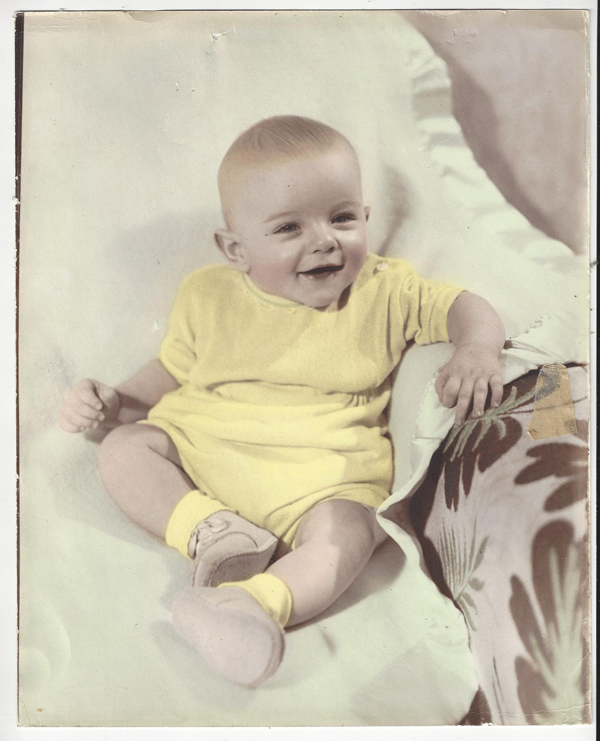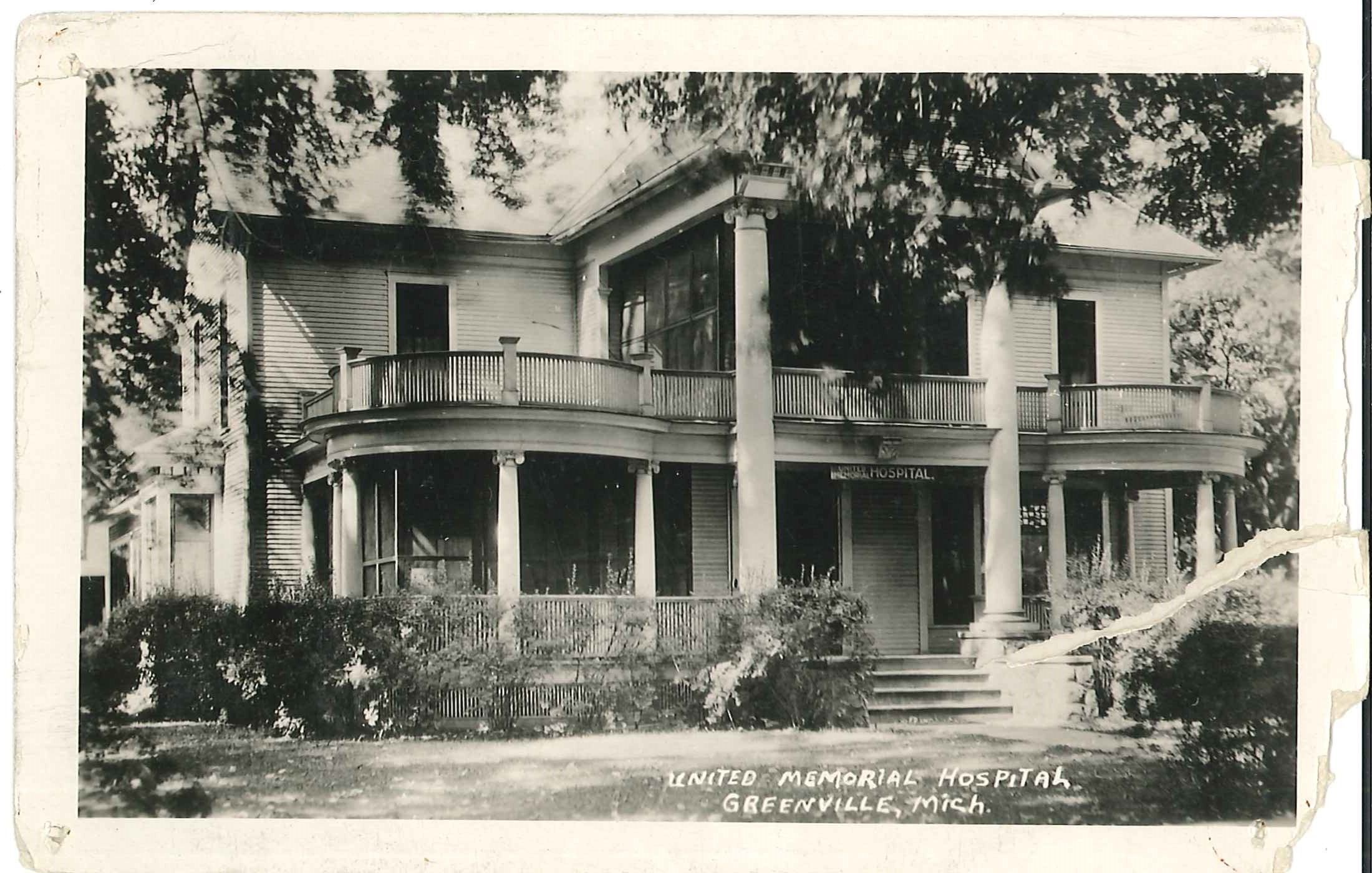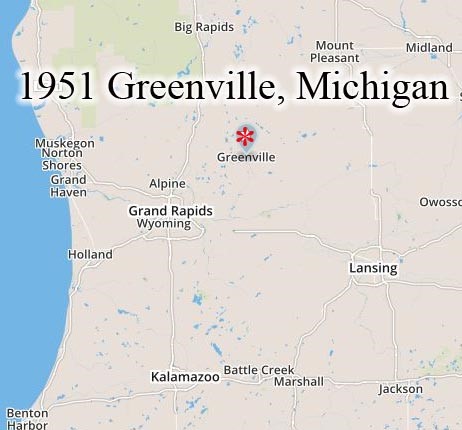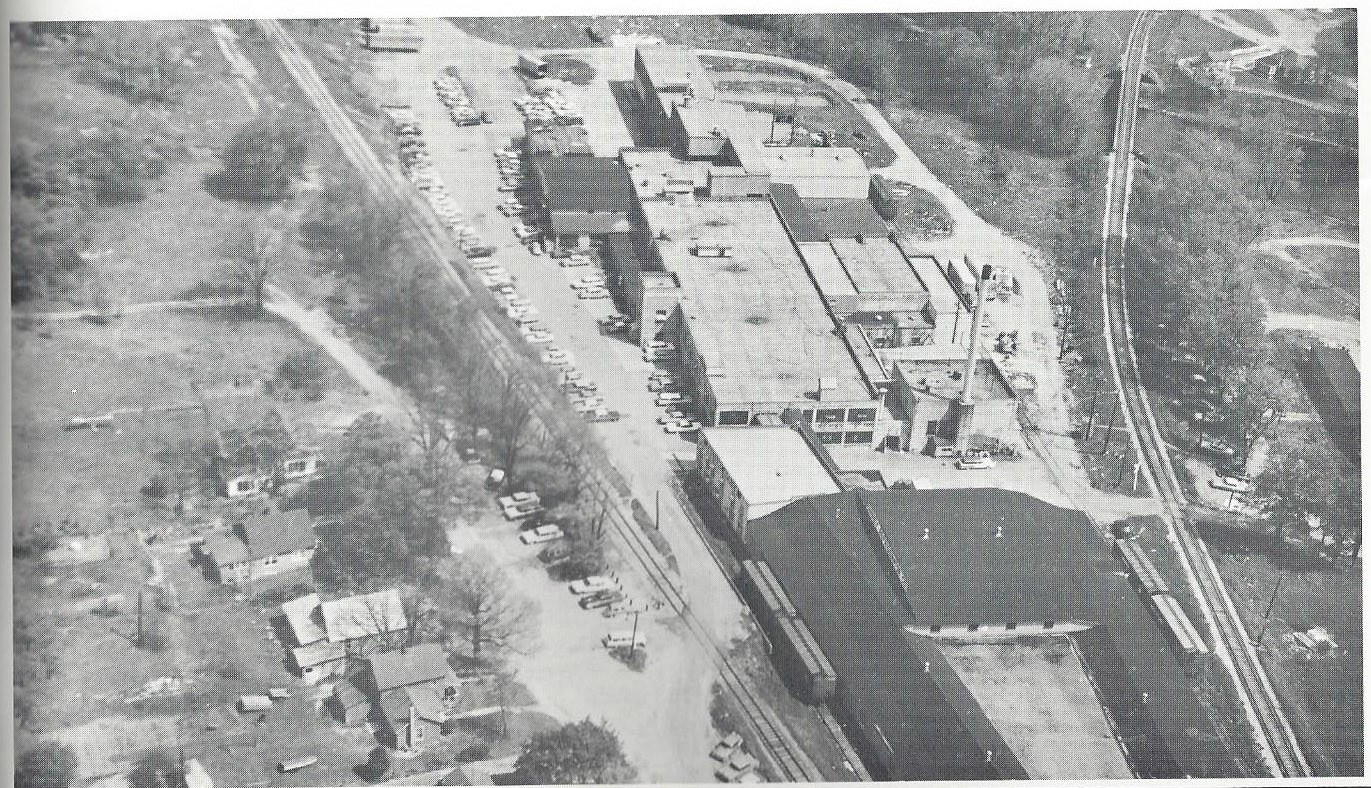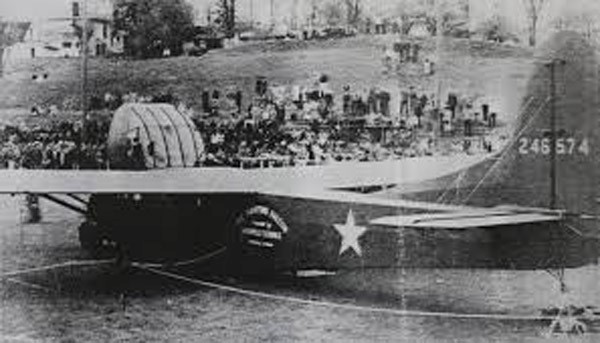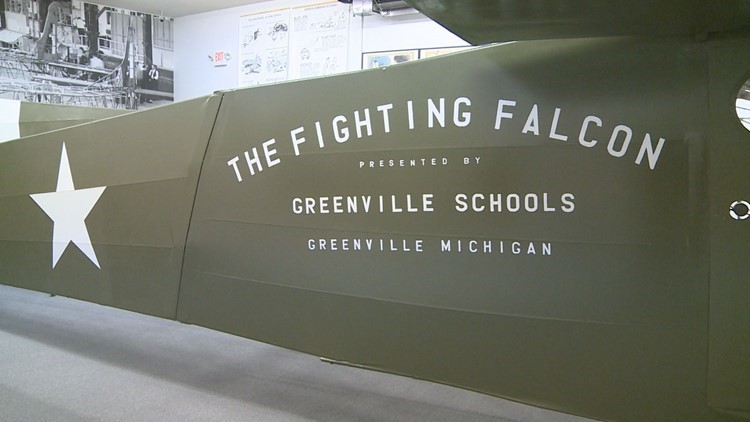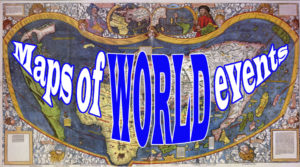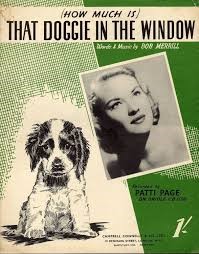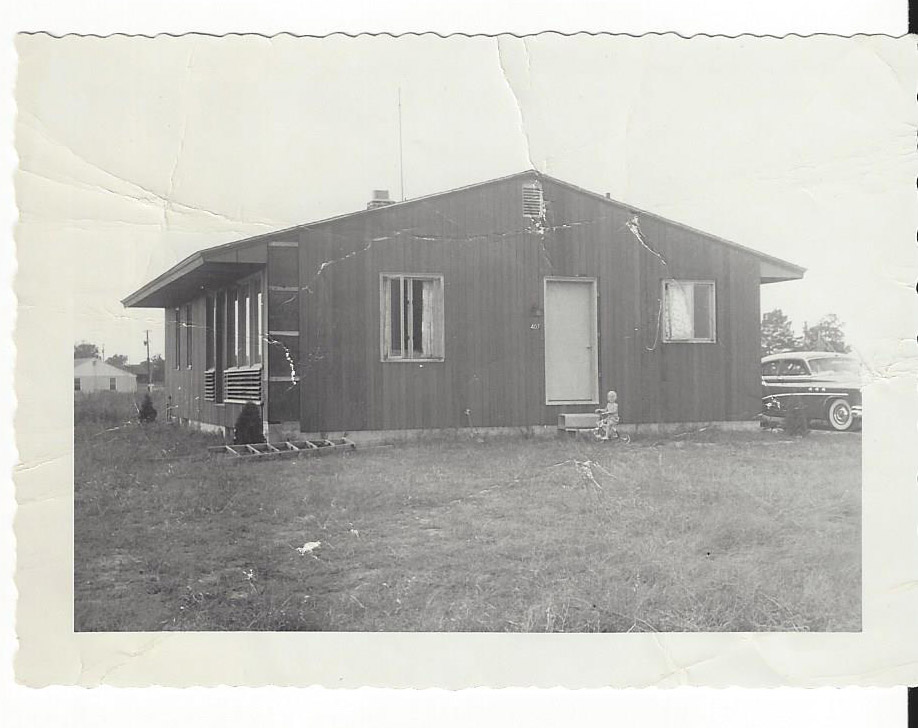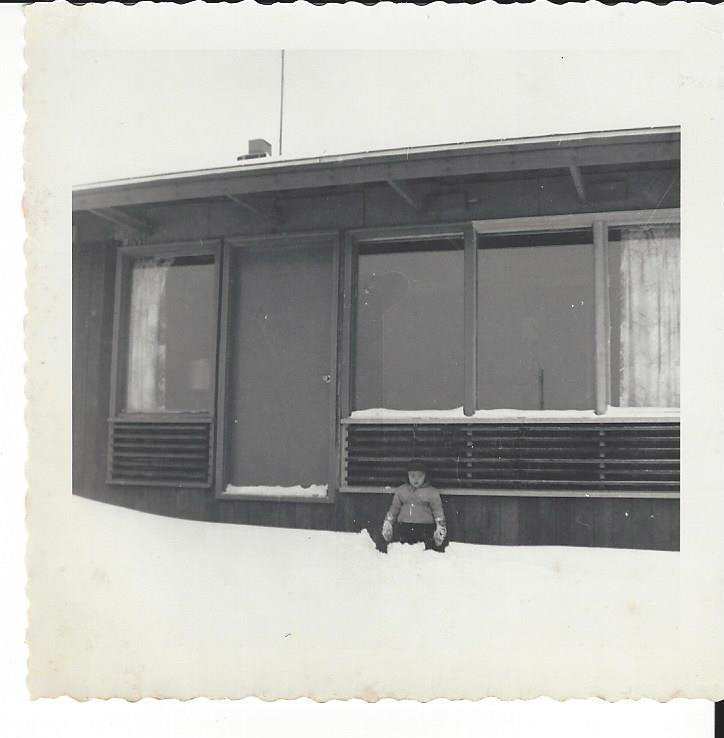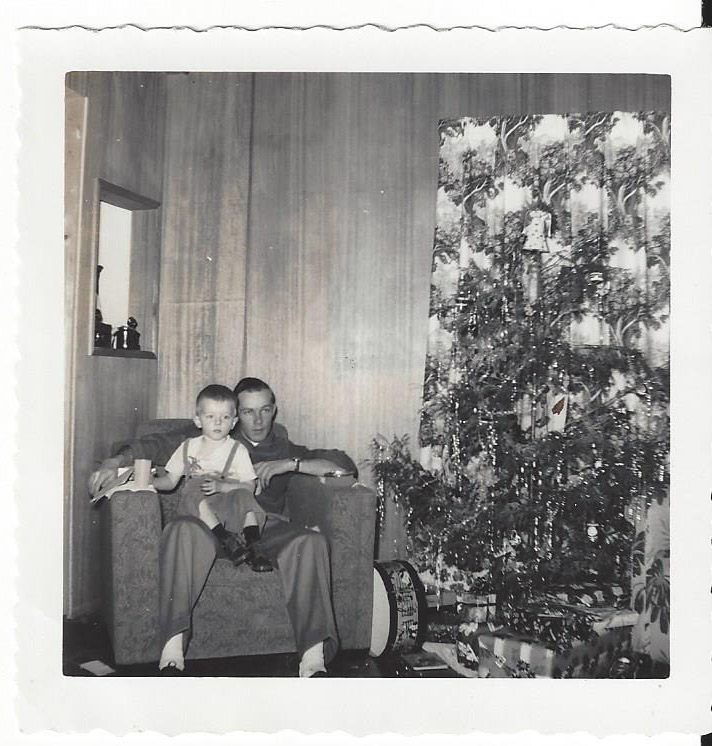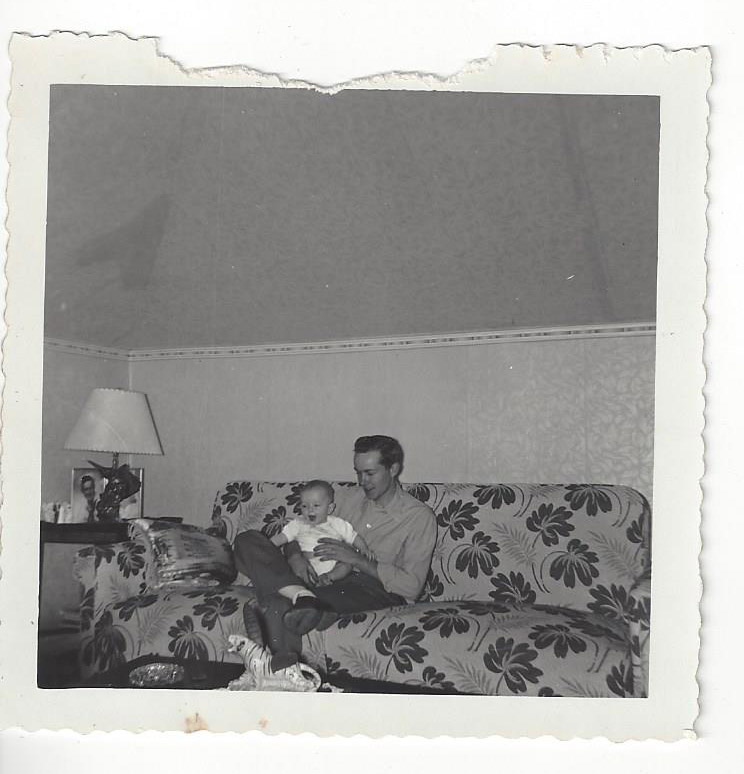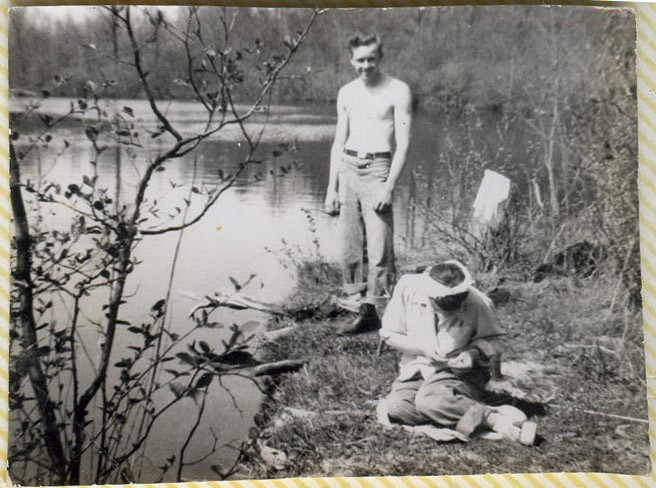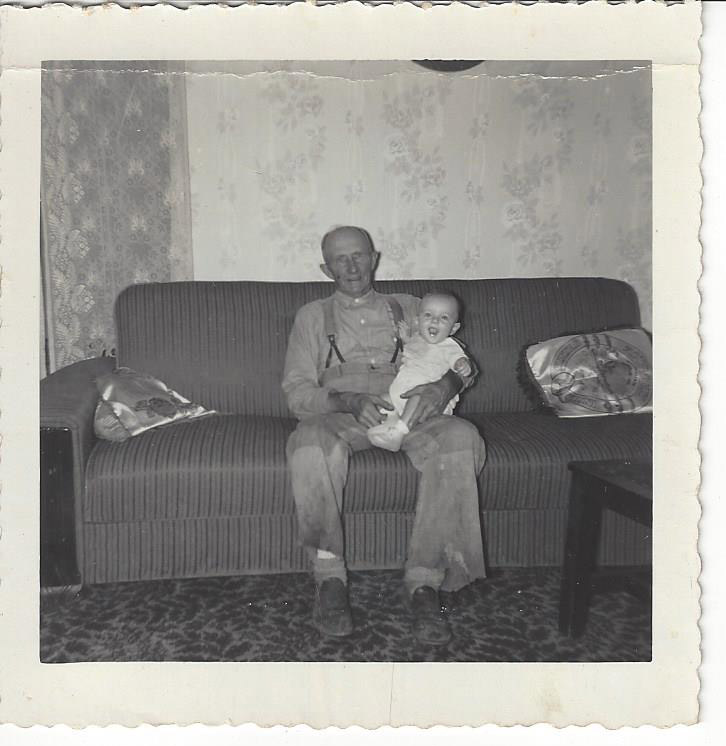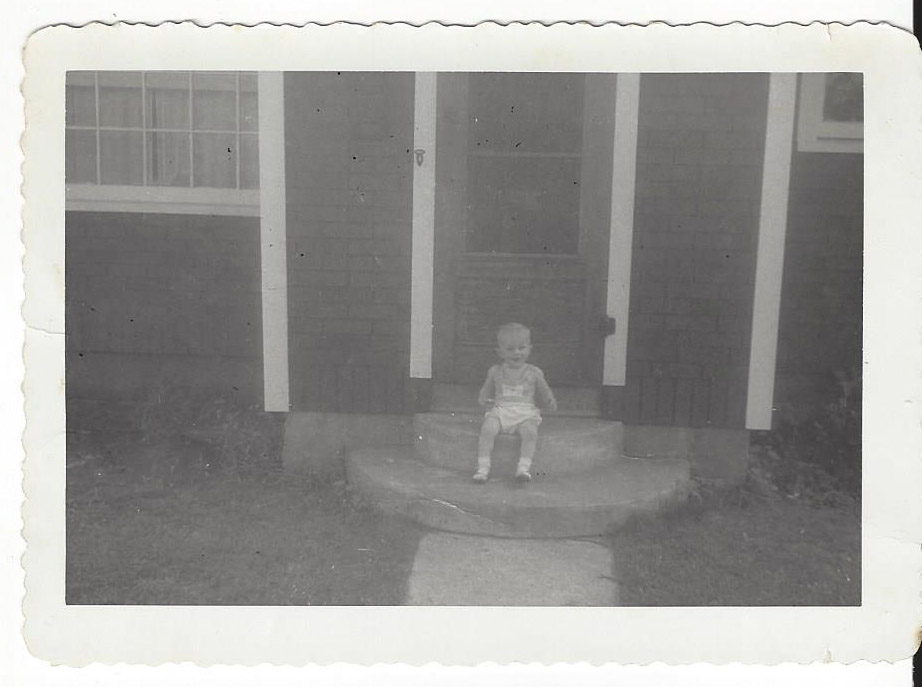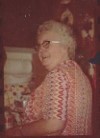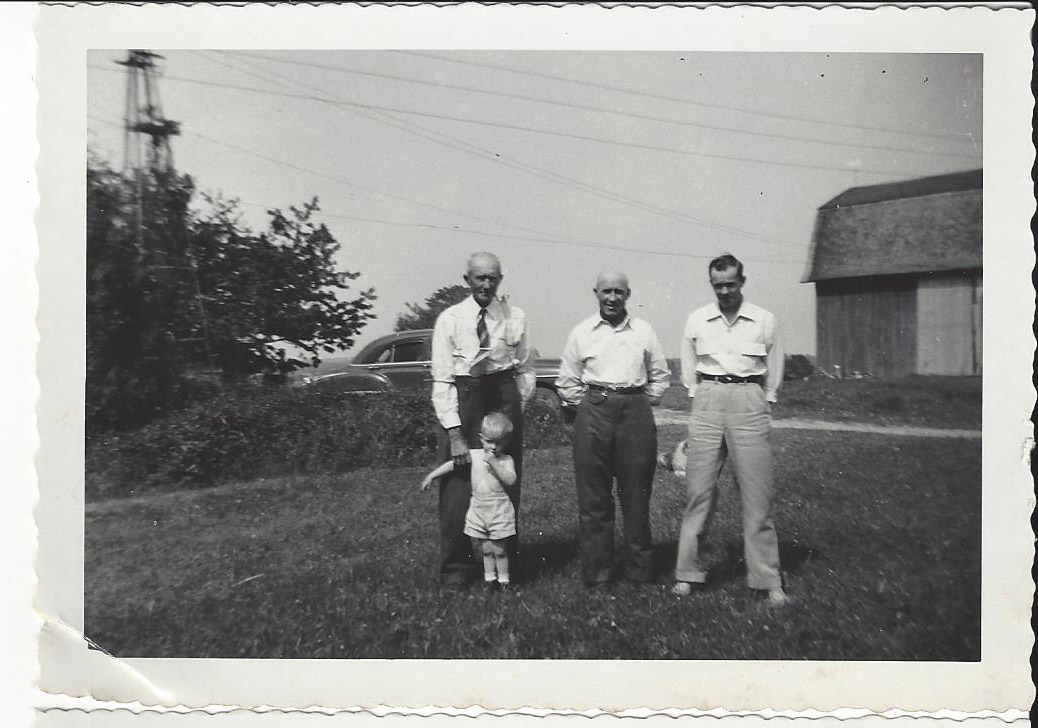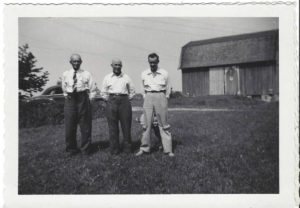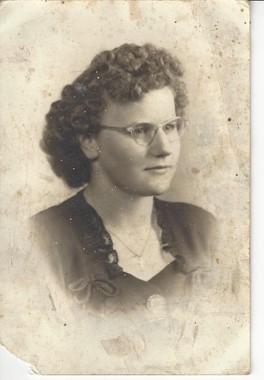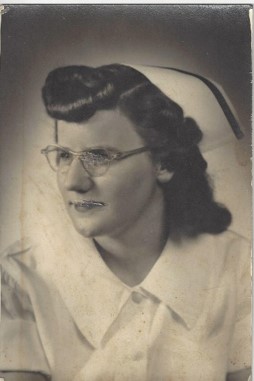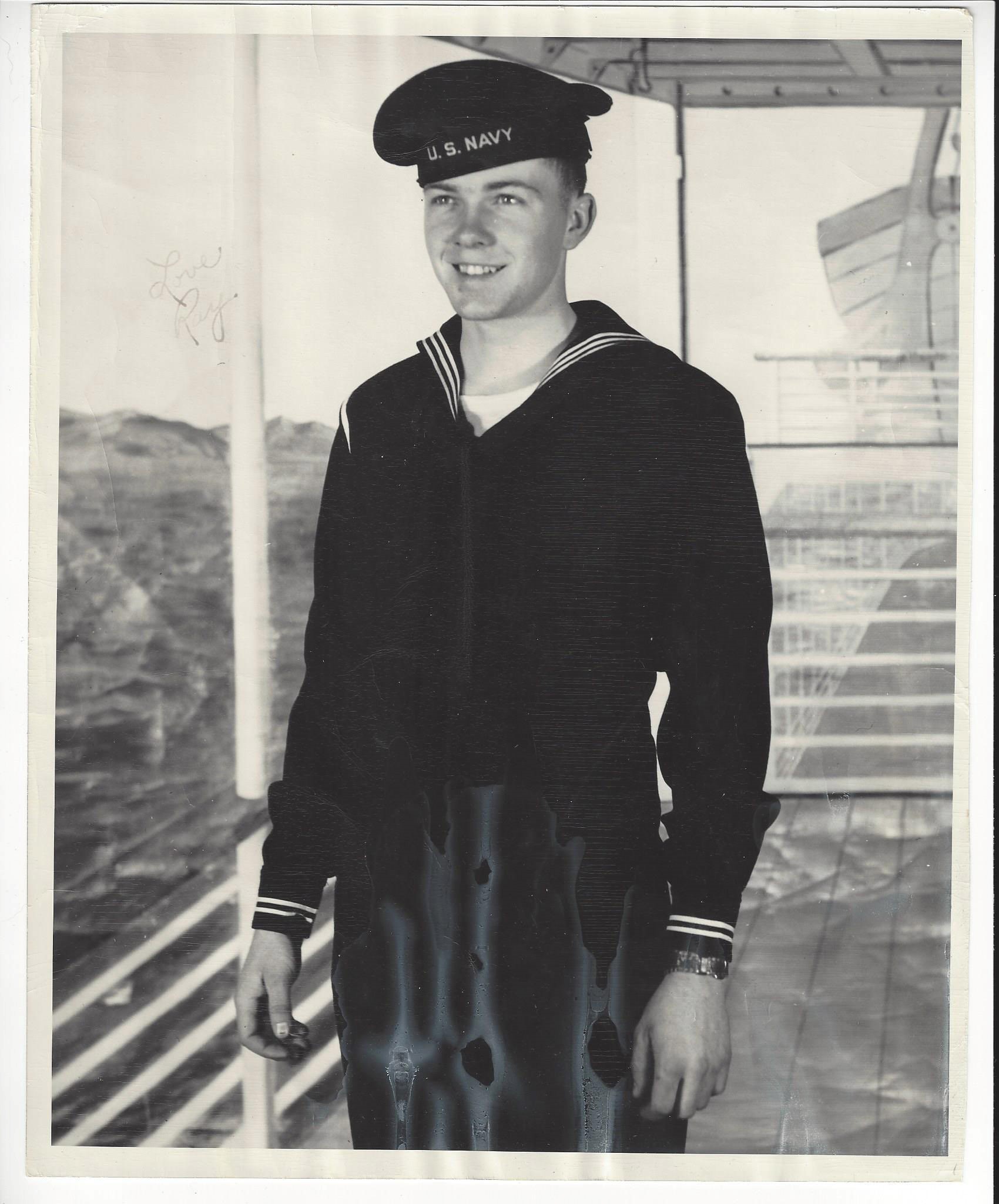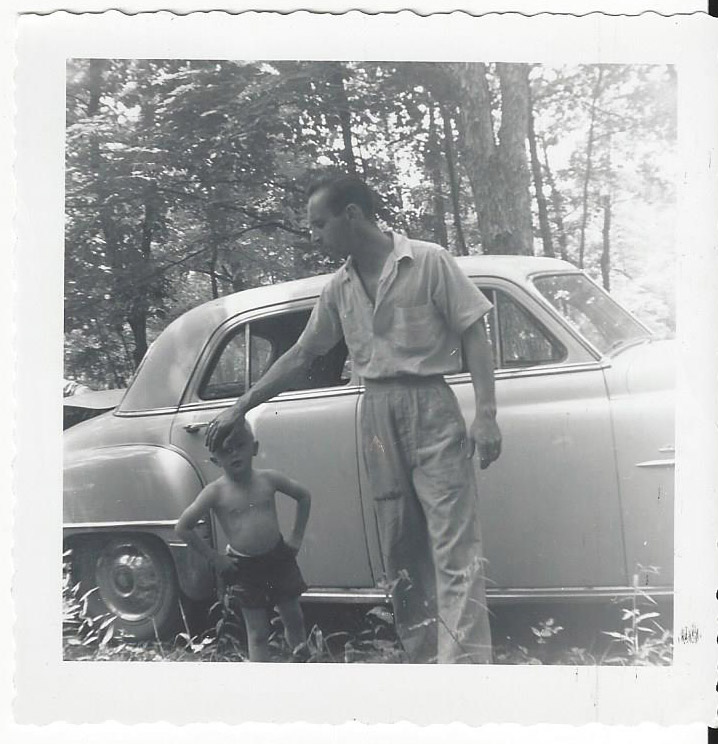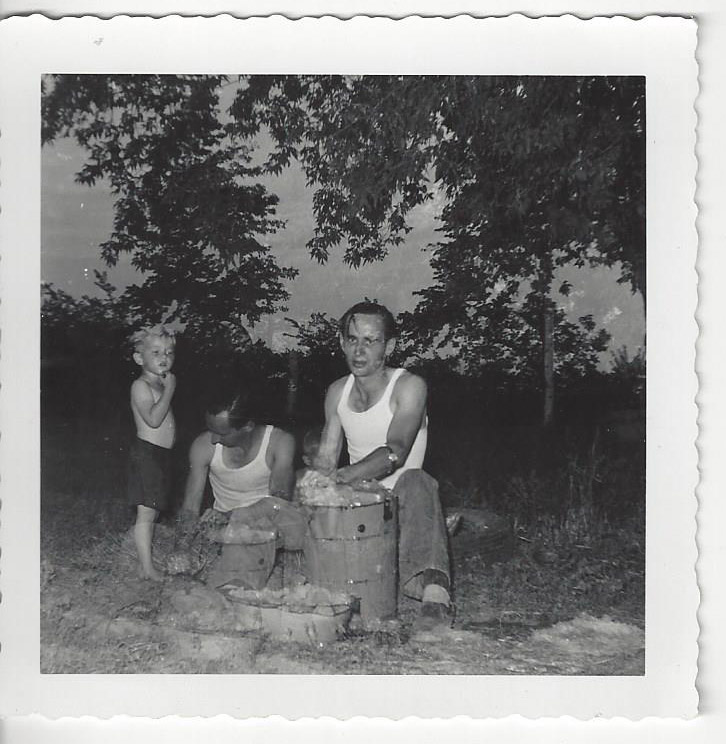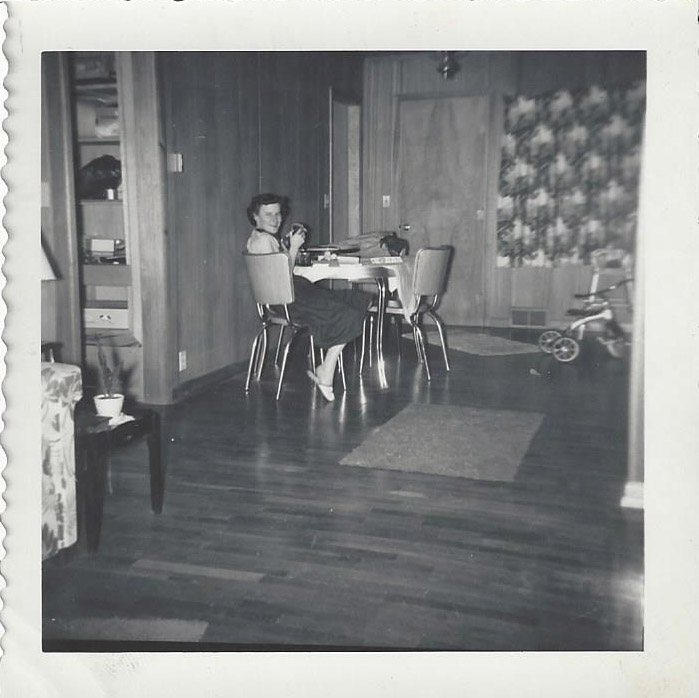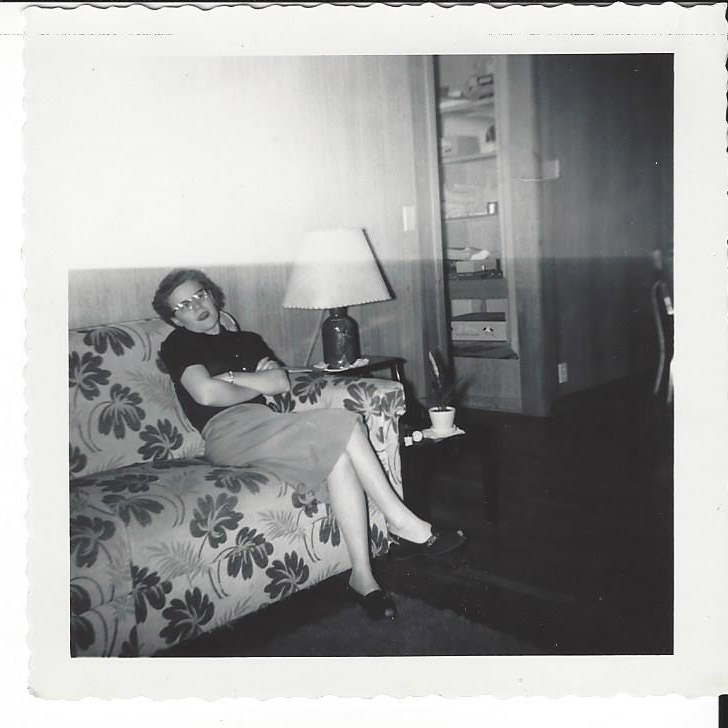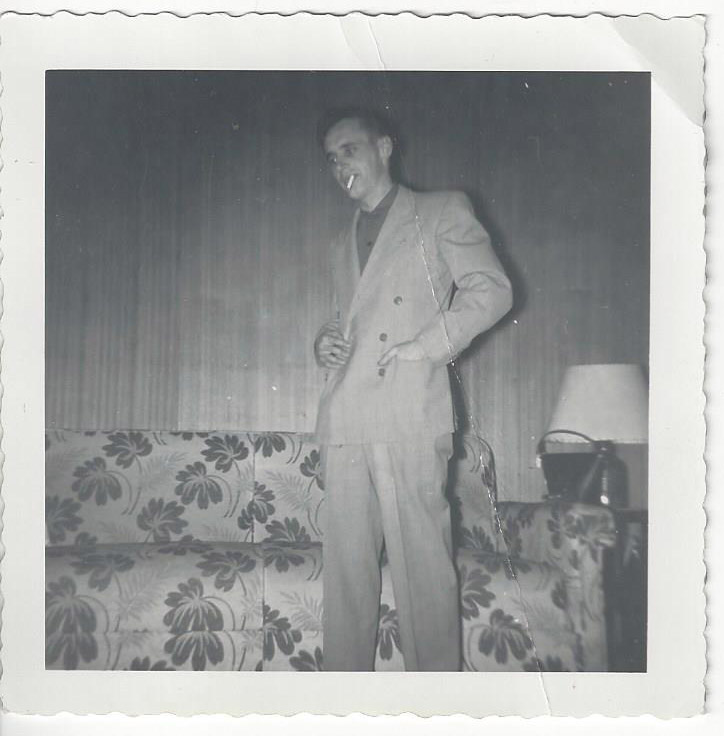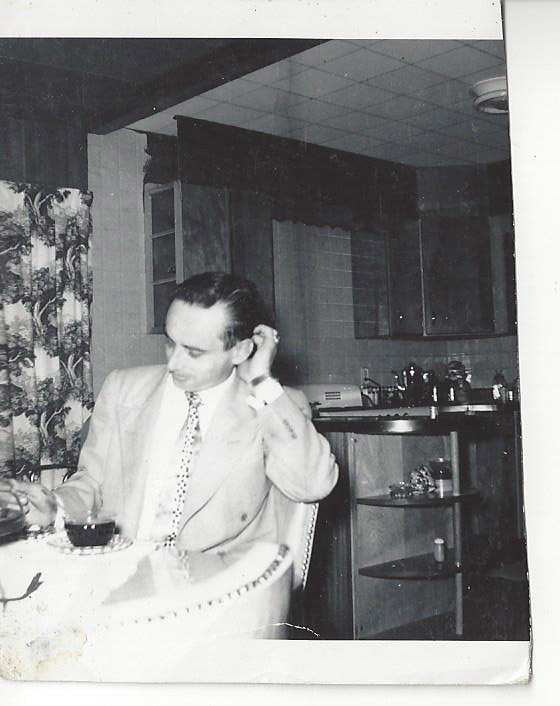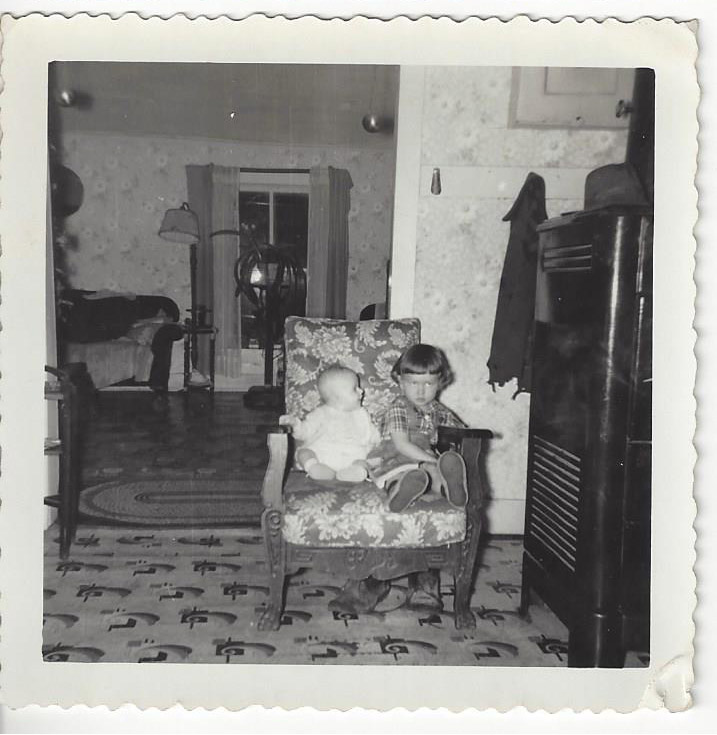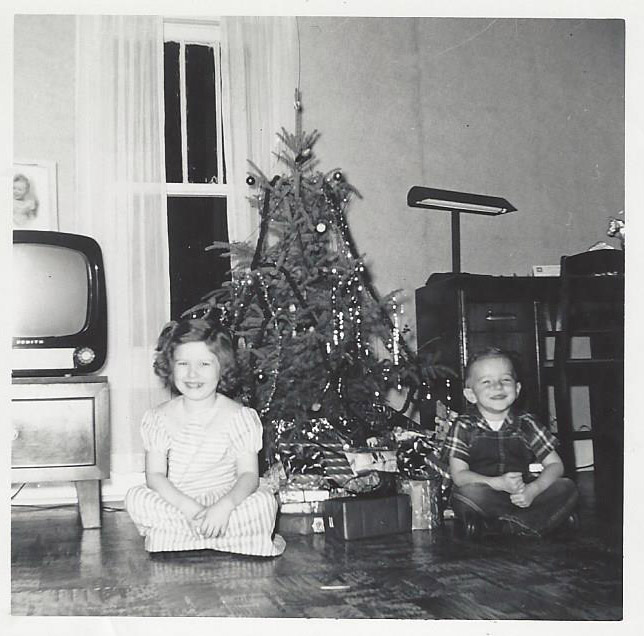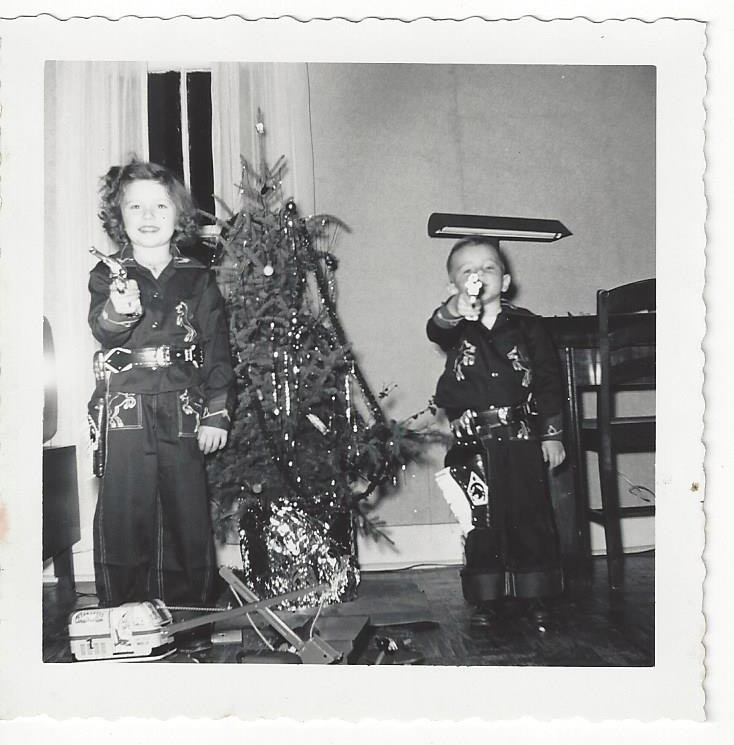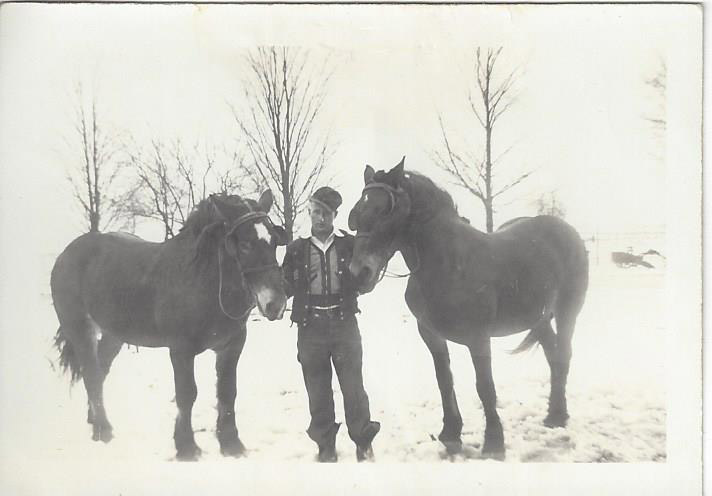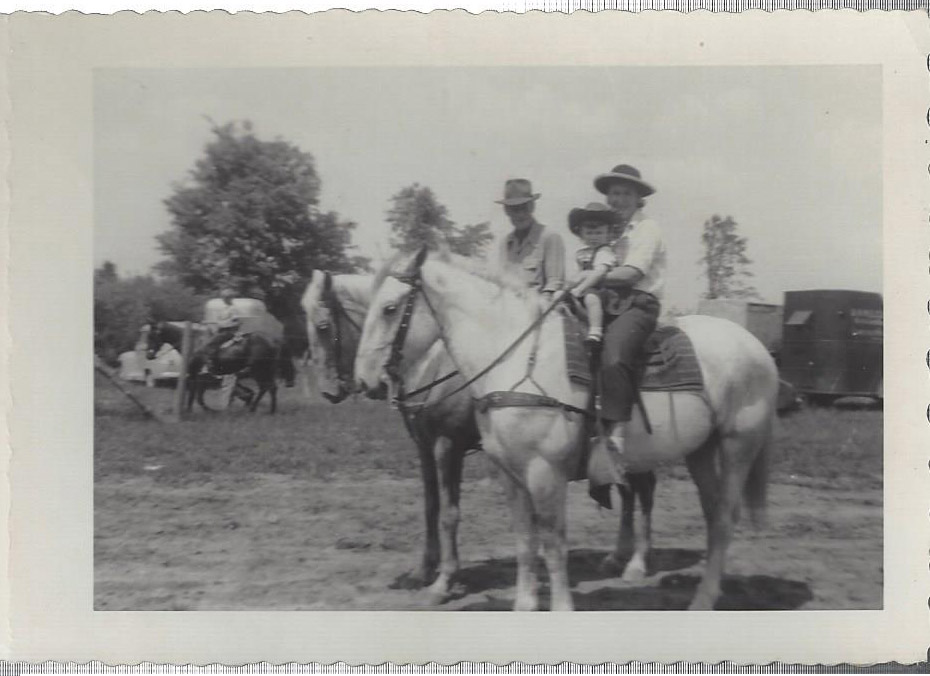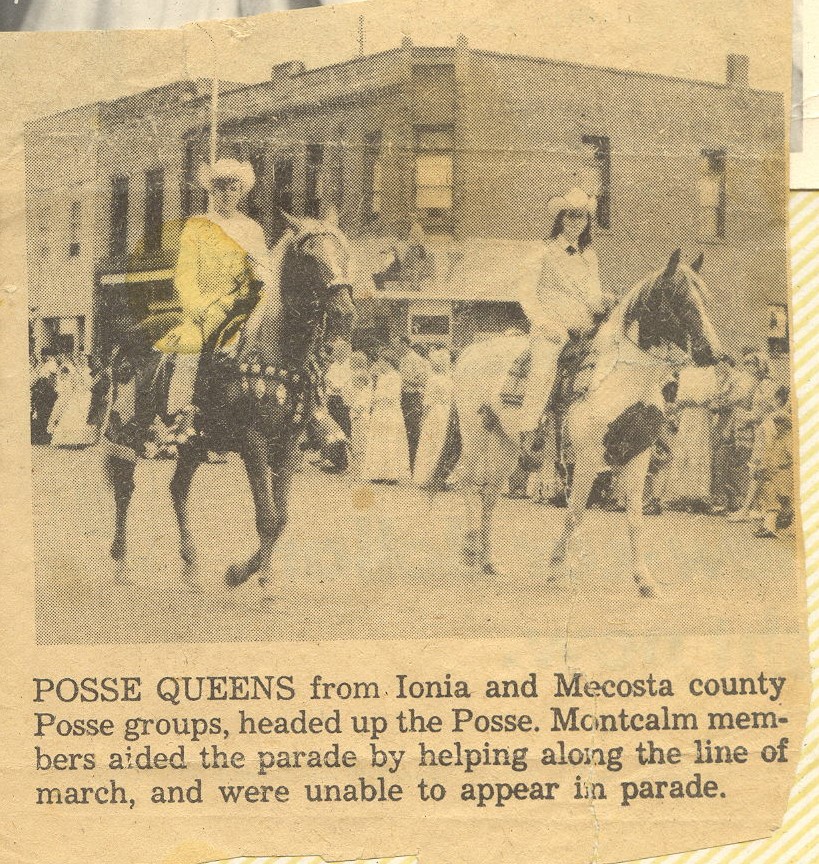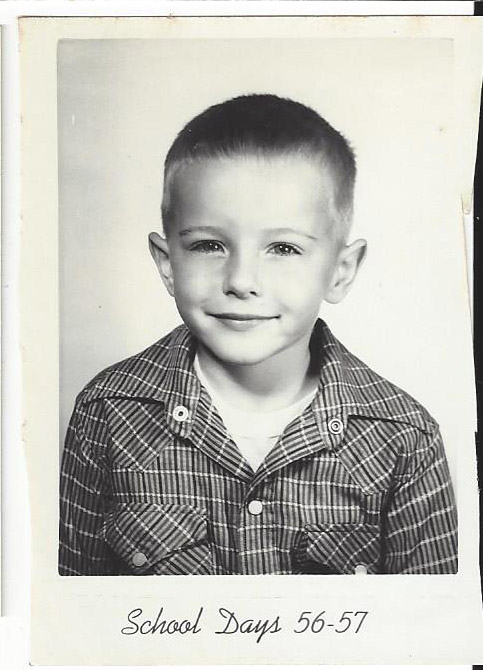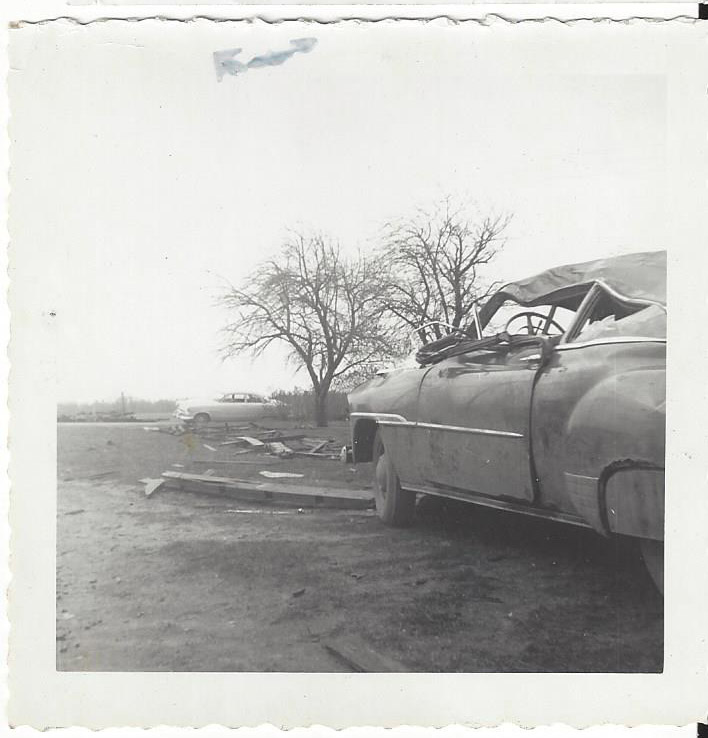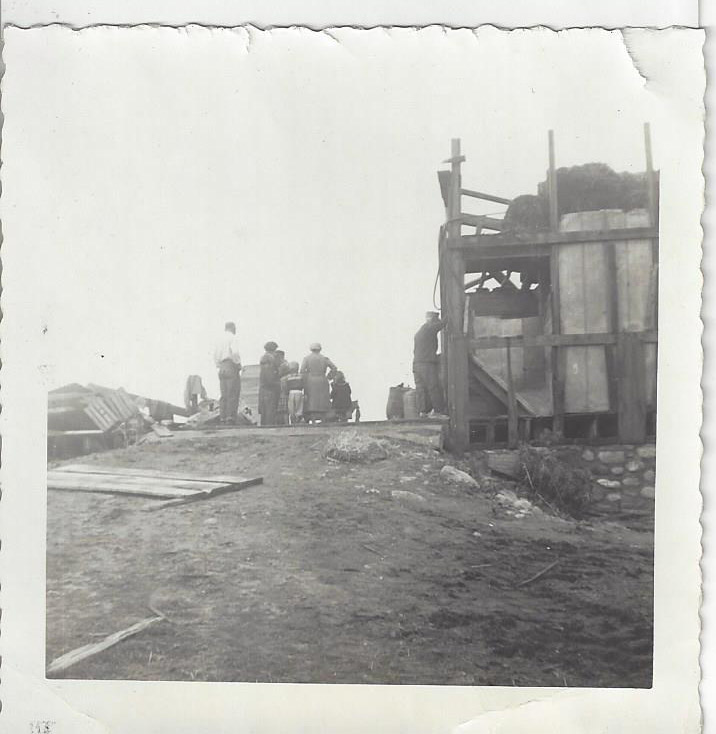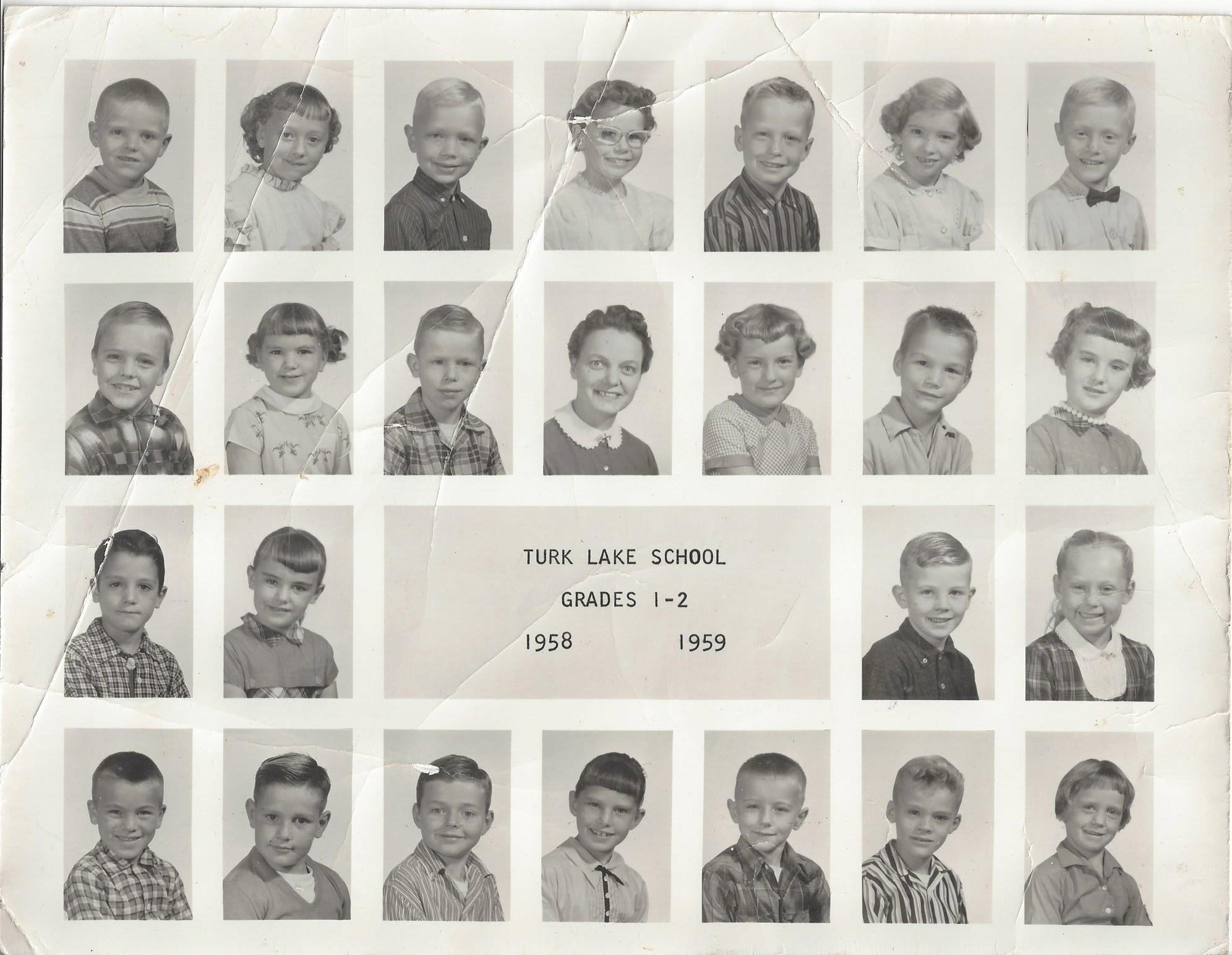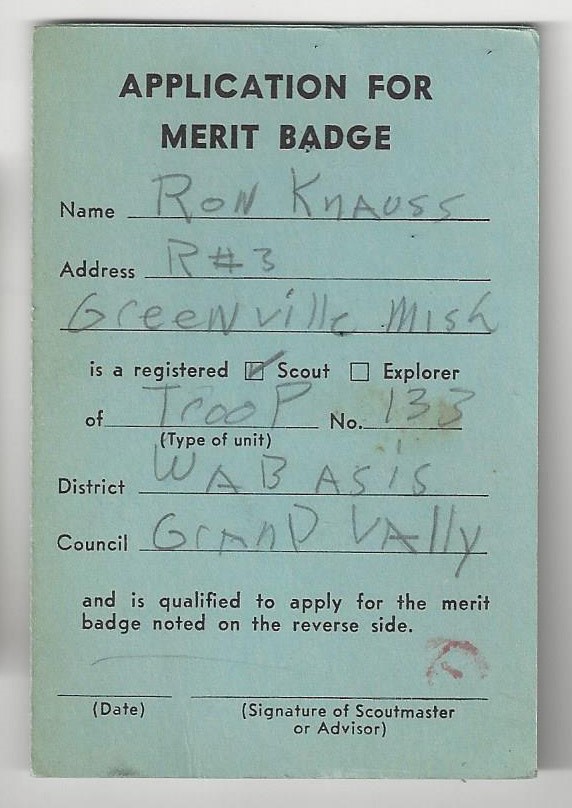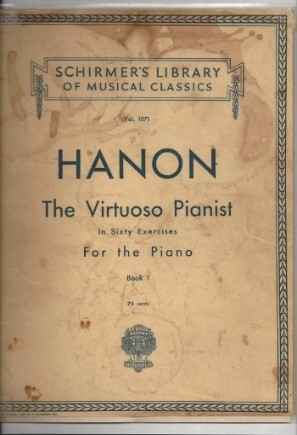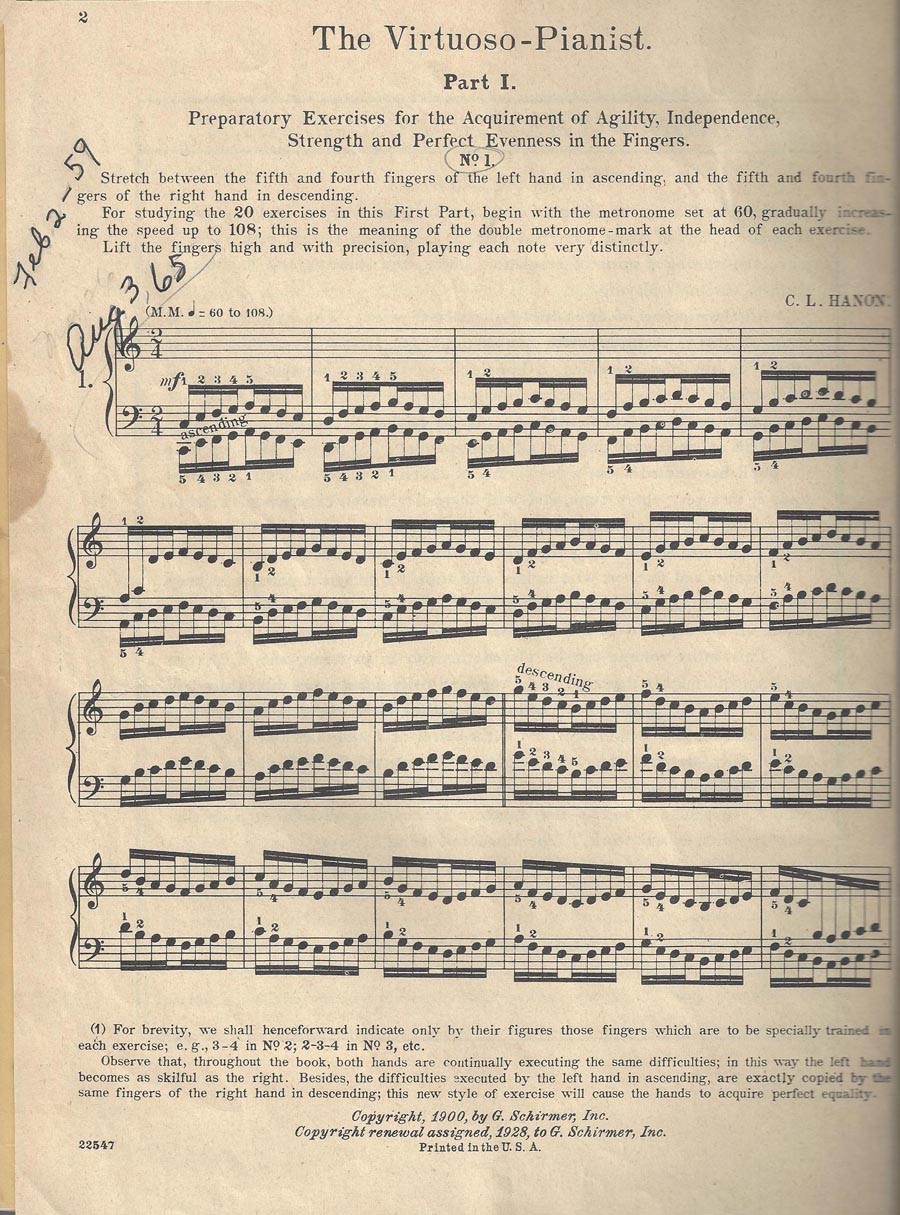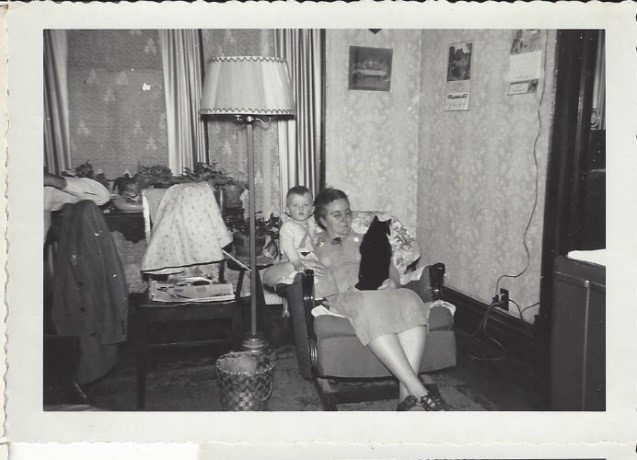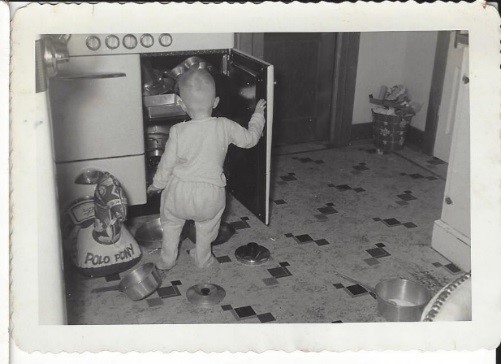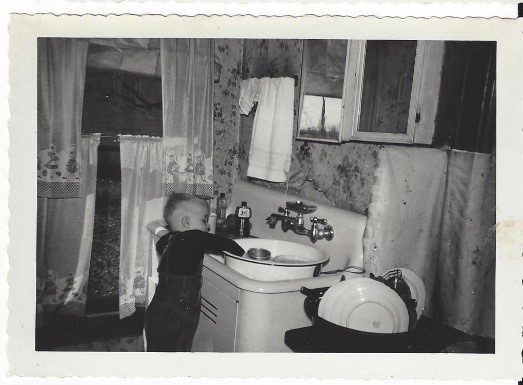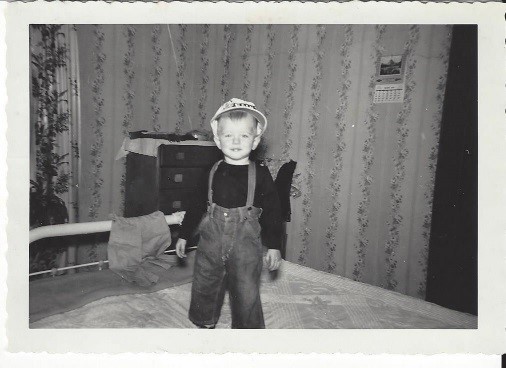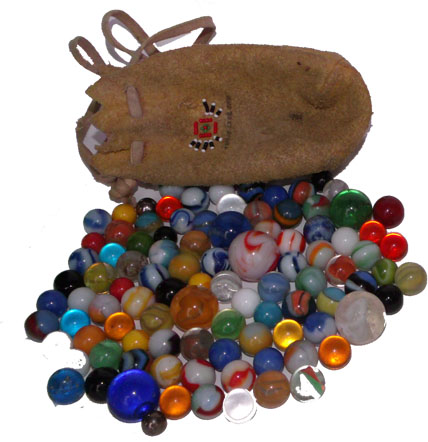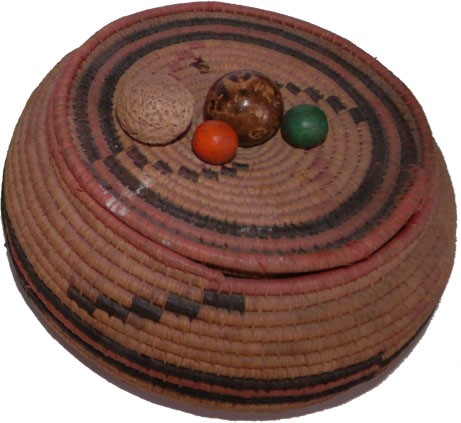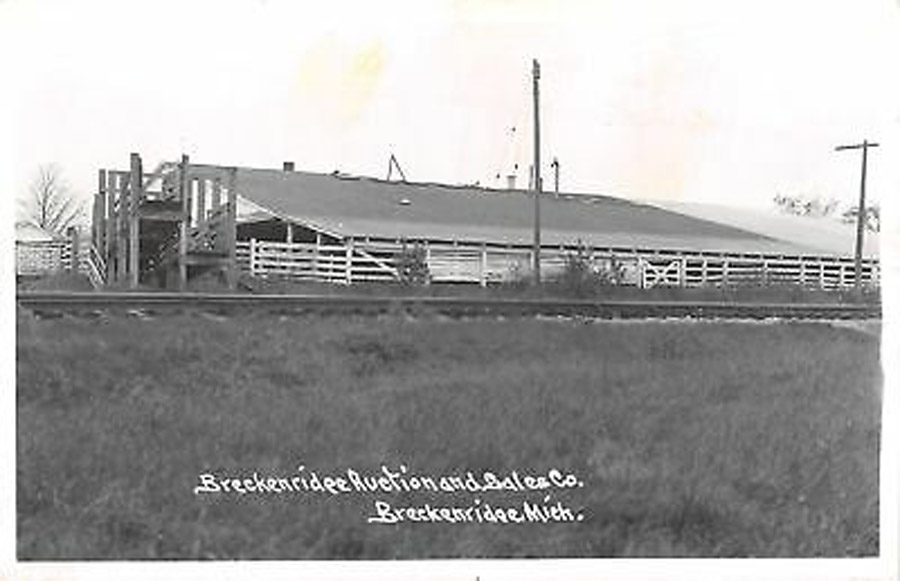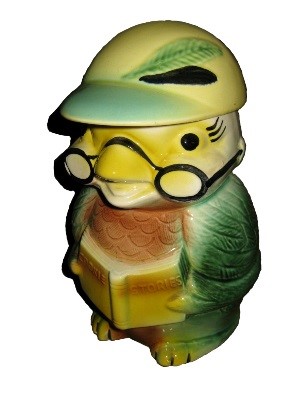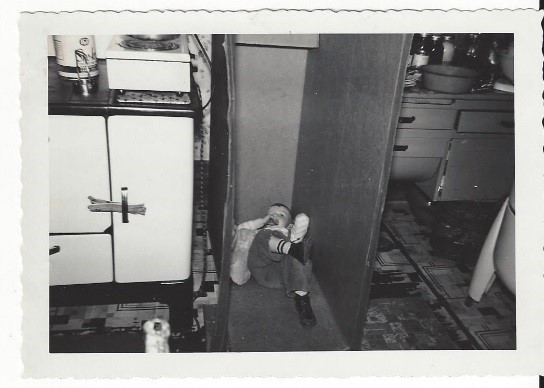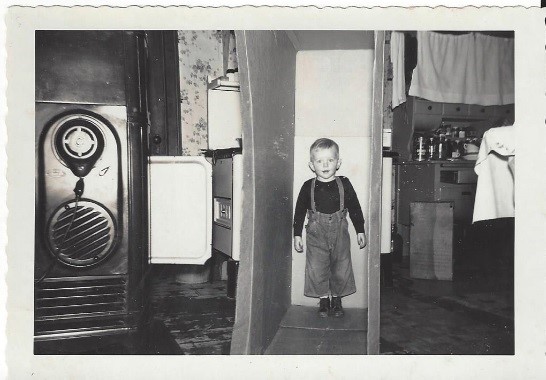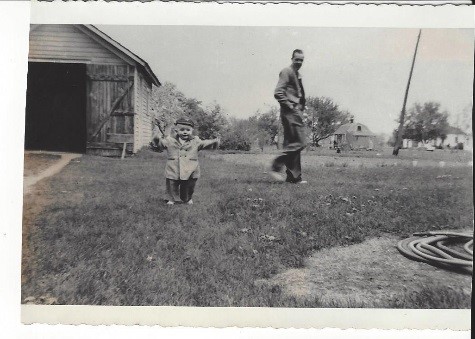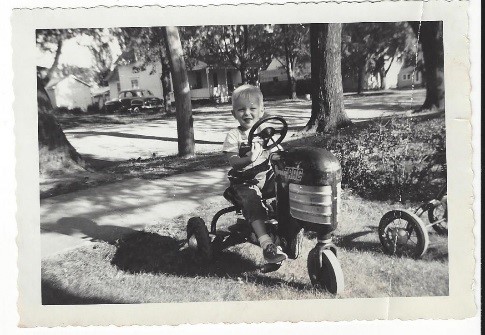I was born Ronald Lee Knauss (1951 to ? author) on April 17, 1951, in Greenville Michigan at the original United Memorial Hospital, because I wanted to be close to my mother. I was spanked on the butt by Dr. Robert E. Rice and sent on my way. The small industrial town was surrounded by farming neighborhoods. There were several churches, two drugstores where you could get a real Coco-Cola or ice cream soda, and everybody knew who you were.
Ronald Lee Knauss 1951 – place of birth
Most families went to church on Sunday but if yours could not make it, there was always someone that would give you a ride. And sometimes if you were lucky, on the way home they might ask you, “Jee-eet-yet?” And when translated from Michigan slang to English this meant, “Have you had anything to eat yet today?”
Then they would ask, “Want-2?” Translation, “Would you like to come home with us and have some Sunday dinner before we take you back home.”
I always said, “yes.”
It was a time when nobody knew where their front door key was because they never locked it. Children could leave their bikes parked anywhere, and when they came back to get it, it would be right where they left it.
The first time I saw a color television show was looking through a store window in downtown Greenville. Walt Disney’s Wonderful World of Color was on Sunday nights. It was the only TV show that was in color; everything else was in black & white.
Greenville had two music stores and during high school I took trumpet and guitar lessons from Bob Hansen’s House of music. This paved the way for me later in life to play live music in many different bands.
In 1844 John Green, a Danish immigrant, settled in the backwoods of Montcalm County. He built a sawmill on the Flat River, and it encouraged other Danish families to construct their home in Green’s Village. John Green had the village platted in 1853. Greenville incorporated as a village in 1867 and as a city in 1871. The Detroit Grand Rapids Western Railroad had a station in Greenville.
Other Danish people were attracted to Green’s Village by the optimistic letters that were sent back home to the old country. Hendrik Meijer was one of these immigrants from the Netherlands. He was a barber and he opened a grocery store in Greenville in 1934. Hendrik’s son Fred Meijer would go on to be a primary creator of the innovative, Meijer franchise of supermarkets.
From the time in1892, when Ranney Refrigerator Company opened a manufacturing factory, Greenville has been known as the “Refrigerator Capital of the World.”
During World War II, Gibson Refrigerator manufactured the Fighting Falcon, the gliders used in Operation Overlord. School children raised the money to purchase the Falcon aircraft.
The Fighting Falcon
White Consolidated, Frigidaire, and Electrolux had refrigerator factories in Greenville. When Electrolux closed down the Greenville factory in 2006 and moved it to Mexico, over 2,700 employees and their families lost their steady income. In 2008 the Lafayette Street downtown was recognized as a National and State Register of Historic Sites.
When I was born the 50s were happening all around me, but I was young for my age, so I don’t remember much of the first part of the decade. In 1950 a year before I was born, Communist and non-Communist forces begin a Cold war on the Korean Peninsula. North Korea sent 75,000 of its troops beyond the 38th parallel the border between North and South Korea. The North was trying to impose communism on its neighbor to the south. When I was two years old in 1953, the fighting ended, but after 60 years, the Korean War has not yet been declared officially over.
Korean War (1950 – 1953)
The 1950s was a time that saw the beginning of the Civil Rights Movement when the American conscience became aware of discrimination and the inequality of African Americans.
American Rock and Roll music was just taking off inspiring a new youth movement. The song I hear playing the most in my 50s memories is Bill Haley’s “Rock round the clock.” Although I still can hear in my mind that Bob Merrill song recorded by Pattie Page, “How Much is that Doggie in the Window.”
My original sheet music
Commercial businesses like Pepsi rode the new consumer market wave of the youth seeking their buying power. They gave James Dean his first big break by using him in their Pepsi commercials. I personally liked Ionia Grape and Orange Soda Pop that was made right here in Michigan.
At home in Montcalm county
My memories of my mother and father are few. The earliest memory I have is when my dad Raymond was building his house in Greenville. My mother Caroline would catch me putting nails down through knotholes in the floorboards. Even today, I can still see my mother in the kitchen area listening to my dad down in the basement, complain that he is being hit by nails dropping from the ceiling.
Raymond’s house in Greenville
Raymond and Ronnie
When he came up from the basement, my dad said, “hey you, what ya doing young man with all my nails, and dropping them on my head like bombs.” I can still smell the sawdust on his clothes when he gave me a hug, and I can see my mother’s face as we both got her smile of approval.
Raymond and Caroline
Another early memory is of being at my great-grandfather Edward Knauss’s farm in Blanchard. He lived on a dirt road in a big two-story Dutch style house with the steep roof. A tall windmill stood next to the house, and it was used to pump water.
Edward and Ronald Knauss 1951- Knauss family farm
There was a small tool shed and garage behind the house that was overgrown in grapevines on one side and purple, white, and blue lilacs on the other. Great grandpa had planted different color lilacs bushes together that grew up to be a big three-color bush. There was a big two-story barn with a hayloft in the top, and the animals were kept in the bottom.
Ronnie on great grandpa’s front doorsteps 1952
I remember being in their front yard with my family. My grandmother Viva Knauss wanted to take a picture of the men in the family. She wanted a picture of what she called the “4 generations of the Knauss family.” This was, 1st my great-grandfather Edward, 2nd my grandfather Harold Forest, 3rd my father Raymond Lee, and 4th me Ronald Lee Knauss.
Viva Knauss
I loved my grandmother very much. I can still hear her pleading with me to stand still at the end of the line so she could take a picture. It was during my terrible-twos and I did not behave that day. I don’t know why; I was always such a good boy. My dad had to chase me down, tackle me, and put me between his legs so I would standstill. Then grandma took the picture. These pictures were taken on the last day my parents were together.
The four generations
Edward, Forest, Raymond, and Ronald Knauss 1953
Growing up on a farm and being the next to the youngest, made my mother Caroline June Ostrander, a fighter, and a stubborn opponent. By her sheer will to pull herself up to a better life, she accomplished by herself, more than any other member of her family had. She supported me and her way through nursing school by pure determination to succeed.
Caroline June Ostrander
The men were just coming home from the second world war. Her generation of gals left the farm and headed to the city to find work and the possibility of romance and a new family.
Back in the 1950s when Caroline and Raymond were married couples did not get divorced. When they took a vow of, “for better or worse,” they meant it and they stayed together for life. But after World War II when the soldiers and sailors came home, the trauma of war had affected some of them. A few of the veterans found it difficult to blend back into civilian life after the war. Raymond was one of the many that did not handle his responsibility to his family very well and my parents separated for ever.
Raymond Knauss in the U.S. Navy
Another early memory of my childhood happened at my Aunt Freda and Uncle Willard Ostrander’s farm in Six Lakes. I stayed there for two years and only found out why when my mother came one day to pick me up. I was 4 years old and getting ready to start school for the first time. She pulled into the yard of my uncle’s home and got out of the car with a stranger, Gerald J. “Pat” Patten (1922 to 2003, stepfather). When I asked, “where is my dad?”
Pat and Ronnie 1954
Caroline said, “this is your dad, you just don’t remember what he looks like.” From then on, I knew my mother would lie to me. It was hard to tell what hurt me more, not seeing my dad with her, or knowing that she would lie to me. This has stuck with me throughout my adult life, why would she lie to me?
Caroline
Pat
My mother had dropped me off with one of her brothers and his wife and daughter while going through her divorce with my dad. My aunt and uncle only had one child, a girl, and they lived on a farm raising horses. I was an only child also, and I loved staying there. I had so much fun playing with my cousin. She was older than me and more mature, but I always had fun enjoying her company.
Vicky and Ronnie
Besides being a full-time farmer, my uncle Willard also worked at the local slaughterhouse, and sometimes he would take us with him to work. It was an “eye and nose opening experience,” visiting the slaughterhouse. The smell of blood will stay with you for a long time.
I was not old enough to do any farm chores and too short to saddle a horse. I must have been a little burden on the family, but each one treated me as one of their own. And boy, was it fun riding the horses. They had a large farm, and the neighbors did not mind us riding across their land, so we had a large section of Michigan to roam. Uncle Willard was very proud of his matched pair of horses, Prince and Tippy.
Willard Ostrander, Prince and Tippy his matched team of horses
There was an apple orchard on their farm beyond the pig pen next to where the horses grazed. We could ride through the trees, pick off an apple, without even getting off the horse. I remember saying back then, “someday I will plant me some apple trees so I can walk right out in my yard, pick an apple off the tree, and eat it.” Much later in life, I did just that, and I thank the Lord each time I eat one of my Michigan Red Delicious apples off the trees I planted years ago, Amen.
Willard, Freda, and Vicky Ostrander
My cousin Vicky was also very interested in horses and she was a barrel rider. She and her mother travelled all over the state to compete in horse shows, and they brought home many trophies and blue ribbons.
Vicky Ostrander
My Aunt Freda loved anything to do with horses. She did all her own leather-working in the Michigan basement under their house. This was a hole under a building, and the walls were made of fieldstone or sometimes just dirt. They always smelled musty, but they kept food from spoiling. And it was a cool place to go in the hot summertime when you did not have air conditioning.
One afternoon my aunt and uncle went someplace and left us kids alone at the farm. My uncle gave me stern orders to be good, mind my cousin, and do whatever she said while they were gone. All was going quite well until we found ½ of an Almond Joy candy bar that was left in the refrigerator. We both wanted some, and we knew that it had to be cut in half. But, neither one of us liked using a sharp knife.
Well, I lost the argument about which one does the cutting, and she handed the knife to me. Only one big problem, she held the candy bar between two fingers when I did the cutting. Yup, she got cut pretty bad on the thumb. It seemed like a long time before the adults got home. My joy to see them arrive was short-lived when I got scolded about cutting my cousin with a knife. I said, “I just did what she told me to do.”
Ronald Lee Knauss Kindergarten age 5
Before school started at the age of 5, I went back to live with my mother. Just after I left Uncle Willard Ostrander’s farm, a tornado hit their house, car, and barn. The high winds destroyed the walls of the barn and plucked off some of the feathers from the chickens. All the people that came to see the damage were amazed that the bales of hay and the loose stuff on the floor was left untouched by the wind.
Ostrander farm tornado
Turk Lake Elementary school was a three-room schoolhouse with a kitchen for serving meals and a large playground. They put kindergarten, 1st, and 2nd-grade students in one room. In another room were the 3rd and 4th grades and in another room 5th and 6th graders. I attended grades kindergarten thru fifth. Once a year, the PTA (Parents Teachers Association) would have a banquet at the school for the families.
Turk Lake School 1958 – 59
The dining room tables were kept folded up, so the floor space could be used for some indoor activity. Before a banquet the janitor would take a big round key and stick into the table and turn it. This allowed him to unwind and set up the tables. Then the kitchen people would bring out the table settings for the meal. When this was done, the teachers would set little name cards at each plate. They separated the students by grades and seated families together.
The kids in the school could tell there would be a banquet that night because all day they could smell a meal being prepared in the kitchen. After school, the kids would run down to the dining area to find out where they were setting that night, and who they were setting by. More than once, I got asked this question, “How come your mother has a different last name than yours, doesn’t she love you?”
Divorce was not an option in a failed relationship during most of this time. But families were starting to be undermined by more liberal views. Hollywood provided movies that supported this erosion of the foundation of the family. Marriages were being put to the test with advertising and easy access to television. And women that went thru a divorce were usually frowned upon and blamed for the separation. This was so obvious to me because it was ingrained into the children I went to school with, to blame the mother.
The highlight of my week at Turk Lake school was the day we got to wear our cub scout uniforms to school and attend the meeting that night. This only child was glad to have some boys to play with. Some cub scout mothers opened up their homes to the troop for meetings, and I still remember these great ladies. Scouting taught me how to get along with other kids, how to work as a team and the benefits of doing so.
Merit badge card
Sometimes during the school year, when one of the scouts had a birthday, his mother would invite the troop over for cake and maybe a stay-over-nighter. I got to go to many different homes and meet some really nice people. Everybody would sing, “Happy Birthday” and “For he’s a jolly good fellow.” Then we would all play games together. When my birthday was approaching, I asked Caroline if the troop could come to our house on my birthday. She surprised me when she said, “yes.”
I delivered a personal invitation to each boy, and they all said they would attend. Caroline had it all figured for a meal of cake and ice-cream. She bought birthday napkins and made my favorite white cake with white frosting.
On the day of the party, the boys in the troop all let me know that they were not coming, and they told me why, “your mother is crazy, and we don’t want to be around her.” That is exactly what these young boys said to me. I rode the school bus home and told Caroline that nobody was coming.
She blew up at me, saying, “What did you do now? You must have said something wrong to them.” She continued saying, “ Maybe you were not good when you were at their house, now they don’t want to come here.” And she went on, “ After all, I did for you. I spent all this time to give you a party, well I won’t do this again.” I left her to her anger, and my home did not seem like a good place to have a party anyway.
When I started school, Caroline and Pat gave me piano lessons. Years later, when I was a teenager, I started playing for school dances and sometimes in a bar. They both said, “giving you piano lesions was the worst thing we ever did for you.” I always wished that they would come and see me play just once before they died, but they never did.
My original Hanon book of scales
Once when I was visiting my grandparents, Grandpa Knauss came home from working all day, I was in front of his piano practicing my music lessons. When I saw him, I complained that my mother was ruining all my fun by making me play the piano for an hour each day. I told him, “I don’t mind it in the winter when its cold outside, but the summer is too short in Michigan, and I do not want to miss any of the warm weather.”
The older man surprised me when he said this, “I, hot. I sweat. I work all day, hot and sweaty. You sit there, you practice your lessons, so you won’t have to get hot and sweaty, then you can work at something you will love to do.” He was right.
My grandpa Knauss was a practical joker and a very funny fellow. He loved to make puns and had a good sense of humor. He told clean jokes like, “A mother at the breakfast table asked her son to pass the molasses.
And the son did not answer so again she asked him to please pass the molasses. The son finally answered, how can I pass the molasses when I have not had any lasses?” When Grandpa Knauss was a child molasses was used like sugar to sweeten thing.
Grandpa Knauss more than once took a bottle of something and pretend to struggle while trying to open it. Then he would ask me to give it a try. Each time he had already broken the seal on the jar. So, it came right open when I tried. Grandpa would flatter me on how I was stronger than he was.
Once Grandpa Knauss told me a story about his life on the farm before he got married to my grandma Viva. He said, “When I got done getting supplies from the store in Blanchard, I could get into the wagon and tell the horses to, Getty-up, and they would walk themselves all the way back to the barn.”
Grandpa went on, saying, “I could pull my hat down over my eyes and set back and take a nap on the way home. And I would wake up with the horses standing safely in their proper feed stall in the barn.” It was apparent to me the horses knew where their food was.
Grandpa had a boat and trailer, and he took me fishing on several different Michigan lakes. He loved to see me catch a fish, and one day all the fish that I caught were bigger than his catch. Grandpa told Grandma when we got home that “We hooked on to a school of fish today, I caught the little ones, and Ronnie caught the teachers and principal.”
Grandpa also used his trailer to haul firewood. He always had a mountain of uncut logs and brush in his back yard. He worked year around using a hand saw and ax to cut fuel for his wood stove. Today as an adult, I have a wood stove, and I now know how much work is involved in burning wood. It makes me sad to think that I never offered to help him because I was too busy playing.
At mealtime my grandpa would reverently bow his head and start his prayer always the same way, he would say, “Our precious heavenly father.” I always knew he had a personal relationship with Jesus, and it was the most important thing to him. It was first and foremost in both my grandparents and Praise the Lord they passed that passion on to me.
I spent a lot of time with my grandparents and stayed at their home often. My grandfather was a local pastor, and I remember always going to Church and Sunday School. I can still hear my grandpa playing his trumpet, someone playing an out-of-tune piano, and everybody would sing the hymns because there was no choir. Wednesday, they went to prayer meetings, and Saturday afternoon, they would clean the church building.
Ronnie and Viva Knauss
One day while my grandma and aunt were doing the Saturday cleaning, I sat down and started to play my piano lesson. Grandma stopped me, and she said, “There will be none of that kind of music played on the church piano.” I did not get it then, but, as a mature Christian, I do now.
In my grandpa’s church when it came time to pray, everybody turned around and bowed down on their knees. I can still hear my grandma quietly trying to keep me quiet. She struggled with me, sliding on my butt under the benches. She kept pink wintergreen candy in her purse for times like these, and one piece usually calmed me down enough to get through the prayer.
Wintergreen candy
My grandparents lived in Breckenridge about a 1-hour drive east from my home. Their house was next to a railroad track, and I loved to hear the train when it went by. My cousins stayed with them sometimes when I was there, and we would run to see the train when we heard the whistle blow.
Grandma’s kitchen and her bedroom
If we hurried and got down by the tracks before the engine went buy, sometimes we could get the engineer to blow his loud train horn. We used our arms to imitate the engineer pulling the whistle, and sometimes he did. That was a big deal for us.
My grandmother was always trying to keep me busy when she was taking care of me. She would dig out the family pictures, and I loved to look at them. She would tell all about the people in the photographs and the history that went along with the snapshots out of her past. She had a box of buttons she would take out and let me play with. I used to pretend they were money. She would tell me how many times these buttons were used on different clothes.
I spent most of my life as a child playing alone, mostly in the trees of a Michigan woods. My grandpa’s generation played with marbles. And at different times throughout the year, I would receive as a gift a bag of marbles.
My marble bag
One day Grandma brought something out of her bedroom I had not seen before. She held in her hand an old Indian basket that held a handful of round things that were lighter than the glass and steel marbles I played with.
Then she told me the rest of the story about my great-grandpa Edward’s farm. After Edward and Mary had lived on their new farm for a few years, a tribe of Michigan Native Americans came to visit them.
Grandma told me this story, “The Indians told your great-grandpa that they used to live on that exact spot where they had built their new farmhouse.”
She was visibly distress as she kept telling her story, “They told grandpa the white men forced them to sell their land and move on. But before they did, they buried all the valuables of the tribe so the white men would not steal them.”
I could hear the excitement in her voice as she continued, “They had buried their treasure in leather sacks under what they called a sacred tree. They described the tree to great grandpa, and he knew just what tree they were talking about because he had chopped it down to build his home.”
Grandma held out her hand and said, “Grandpa took the Indians to the stump of the old tree, and he allowed them to dig around it, and he left them alone to do so. When the Indians got ready to leave, they came to grandpa’s farmhouse and showed him what they had found. There were some gold and silver beads, some money, and a few handmade clay marbles.”
Native American basket and handmade clay marbles
Grandma took my hand and gave me the marbles, “The Indians offered to give some of their treasure to great grandpa because it was found on what was now his land. Great grandpa told them he was happy to help, and he did not need any reward. So, the Indians gave your great-grandpa these Indian marbles to say thank you.”
Grandma would not let me play games with these Indian marbles because my other marbles might break them. I just got to see them on special times when she wanted to get my attention off of something, and on to something else, as parents do.
Viva and Harold Forest Knauss
Years later, when my grandpa Harold Forest Knauss died, she kindly gave them to me. I still have them today in my marble bag. And I mounted one of them into the tiles above the stove in my kitchen. I have told all my grandchildren the story of the Indian marbles.
I remember my grandpa taking me to the Stock Yards to see the farm animals. He would buy me Cracker Jack’s caramel corn & peanuts to eat as we watch the men move the stock from one pen to another, getting ready to be sold. The auctioneer could be heard over the loudspeakers making a deal for someone with his gibberish. I never could make much sense of what he was saying. Still, I did enjoy watching his performance, entertaining the audience in the arena.
Breckenridge livestock barn and railroad tracks 1950
Breckenridge, Michigan
When I stayed with them, my grandma would always have something special for me to eat each day. One day she would make homemade French fries, another day waffles, then blubbery muffins, all the things she knew I liked. I can still here her yelling at my cousin and me, “You kids get out of that cookie jar,” as we tried the keep the screen door from squeaking while we raided the cookies.
Grandma’s Hootie Hoot Owl cookie jar – the cookie bandit
I used to wait by the window looking out for when my grandpa got home. He was always so happy to see his grandchildren ready to greet him when he arrived. This man was the most influential Christian I knew personally as a young man. When my grandparents said they loved me, I knew they did.
Grandma’s yard
Next: The return to Gettysburg – part 2
>>>Click here <<<
Word count: 4699

